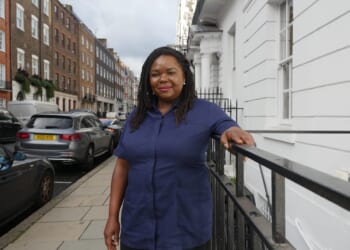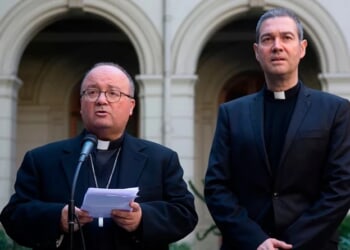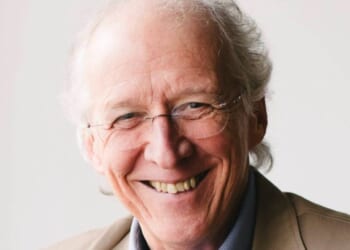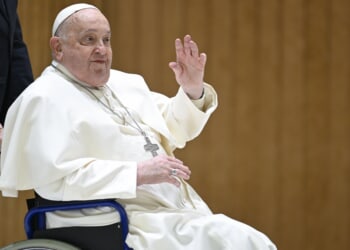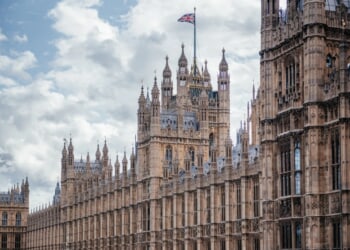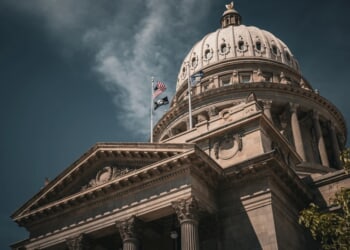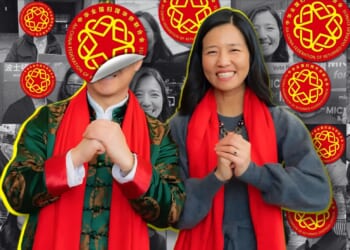Rome Newsroom, Apr 19, 2025 /
06:00 am
Two families of mixed Catholic and Orthodox Christian members are looking forward to celebrating Easter together on the same date in 2025 as they also hope to one day see greater unity among all Christians.
Joseph Lovskiy, who is the only Catholic in his Russian Orthodox family, summed it up with one word: “joy.”
From the city of Yekaterinburg in Russia, Lovskiy’s wife, three children, and six grandchildren are all Russian Orthodox. His youngest son is a priest of the Russian Orthodox Church.
“Since Easter falls on the same date this year, the only feeling one can have is joy,” he told CNA in a written interview translated from Russian.
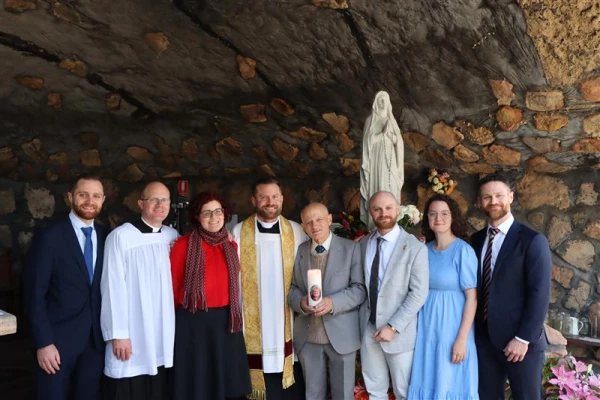
Like Lovskiy, Father Richard Sofatzis, a Catholic priest in the Archdiocese of Sydney, Australia, also grew up in a mixed Catholic and Orthodox environment, since his father is Greek Orthodox and his mother, who died in 2017, was Catholic.
“Unity between … as John Paul II said, the two lungs of Christianity, East and West, has been something that’s been very dear to me. I’ve prayed for it many times,” Sofatzis told CNA by phone. “I guess I think it’s something we can work towards, aspire to, but it does seem at times very difficult to obtain.”
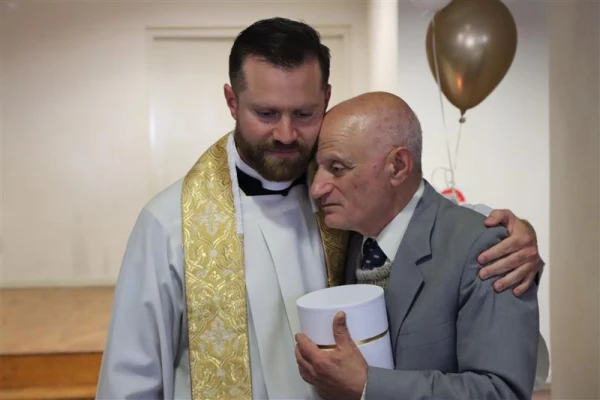
This year marks the 1,700th anniversary of an important Church council, the Council of Nicaea, which was held from May to August 325. Among other important decisions, the council established a unified way to calculate the date of Easter each year. Pope Gregory XIII enacted further reforms in 1582, which gave the Catholic Church the Gregorian calendar it follows today.
But because the Catholic and Orthodox had split in 1024, the Orthodox countries did not accept the changes to the calendar made by Pope Gregory. And so, the two churches often celebrate major feasts such as Christmas and Easter on different days — because they are calculated using different calendars. There are exceptions, however, when occasionally the calendars align, as will happen for Easter in 2025.
Sofatzis said the Council of Nicaea and other Church councils that followed are admirable for the way they overcame fierce and difficult debates to give a clear, unified expression of the faith and its teachings — an example for all Christians seeking unity.
“It’s good that we’re celebrating the occasion,” he said. “The fact that Easter is the same this year is, I think, really important. I’m really hoping more than anything else, even if [Catholics and Orthodox] can’t achieve full unity, we could work towards that common date for Easter — something I’ve been looking forward to for many years.”
But the Catholic priest added that the full unity of the “two lungs” must be worked out by the hierarchies, and that is quite difficult due to political and cultural pressures. Meanwhile, however, his family and others live out ecumenism in their relationships every day.
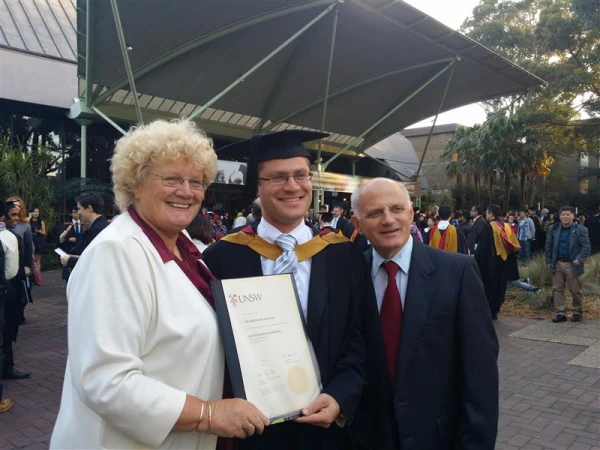
Sharing Easter, sharing traditions
Lovskiy, who was raised by a Catholic mother and Russian Orthodox father, said he agreed with his wife before their marriage to raise their children in the Orthodox Church. Despite being the only Catholic in his family, he said he has never felt lonely: “We support one another.”
(Story continues below)
Subscribe to our daily newsletter
After attending Easter Vigil Mass and liturgy in their respective churches, on Easter Sunday this year, the family will gather to enjoy a homemade meal of traditional Russian Orthodox dishes, including pies, dyed eggs, and “pashka,” a cheesy custard dessert with fruit, honey, and almonds, served with slices of a sweet Easter bread called “kulichi.”
They will also feast on various meat dishes, including roasted and smoked meat and homemade Belarusian sausage.
Lovskiy said it is customary to have the food served at Easter blessed, but in the Orthodox Church, only eggs and “kulichi” are blessed — meat cannot be brought into the church — while in the Catholic Church, meat, sausage, salt, and bread are all brought for the Easter blessing.
Sofatzis’ family, including most of his seven siblings, three in-laws, and five nephews, will also have a big family lunch on Easter Sunday — but Greek Orthodox style.
The priest, who is an assistant at St. Patrick’s in Sutherland, a suburb of Sydney, will meet his extended Greek family at his aunt and uncle’s house after celebrating Easter Mass on Sunday morning.
“They’ll put on a big Easter spread with lamb; that’s the classic meat to eat … We all gather together, have a really large meal, and spend the afternoon catching up and talking and spending good quality time together,” he said.
Another important food item for the Greek Orthodox is Easter cookies called “koulouria” (also known as “koulourakia”), which are butter-based pastries flavored with orange zest and vanilla and often topped with sesame seeds.
Sofatzis said he taught himself how to make the braided or spiral-shaped cookies so he could keep the tradition alive. “You roll them out and spend a whole day in Holy Week making all the cookies, and then you give them to your friends and family,” he explained.
When he was young, Sofatzis said there was one Greek tradition he looked forward to with particular joy every year: dying hardboiled eggs red, which are then used in an Easter Sunday egg tapping competition.
“As a child, I would actually do the dying,” he said. “I would learn from my grandmother, and I would watch how she dyes the eggs, and how she patterned them with leaves and other things, puts the decorations on them.”
“We say, ‘Jesus Christ is risen.’ And then you tap the heads of the eggs together, the tops of them, and you see who cracks the other. And then you go round until there’s the champion who has the strongest egg,” Sofatzis described, adding that he will compete against his cousins again this year.
‘Double celebrations’
While for feast days Lovskiy attends Mass at his church, and his wife attends Divine Liturgy at hers, the rest of the celebrations are always shared, he noted.
“In our families, both my parents’ and my own, there have never been any distinctions — whether a holiday is Catholic or Orthodox, we celebrate all holidays without any restrictions,” he said.
Sofatzis’ family would also have “double traditions and double celebrations,” he said, noting that as children, he and his siblings “always enjoyed celebrating Easter twice” — doing all the usual things, like chocolate eggs, for Catholic Easter, and a few weeks later, the Greek traditions for Greek Easter.
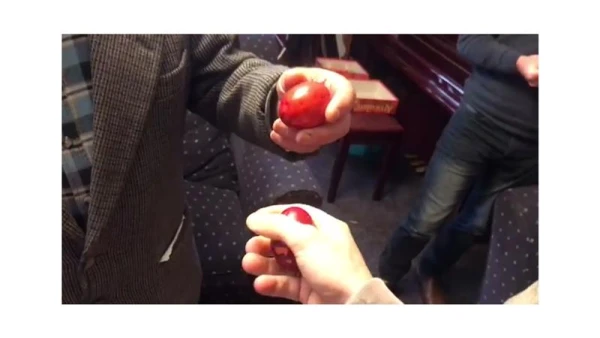
The priest’s Catholic mother, who was born in England, and Greek Orthodox father, who was born on the Greek island of Limnos, agreed before their marriage to baptize and raise their children in the Catholic faith but to send them to a Greek Orthodox primary and secondary school.
“So it was a very mixed environment. … We grew up with an immersion, you could say, into the Orthodox tradition. We would go to the Divine Liturgy every month with school, sometimes on Thursdays, or sometimes on the weekend, the big feast days,” he said, adding that they took Greek dance lessons and participated in a lot of Greek cultural traditions.
But as a high schooler, doing his own study into papal authority, different understandings of certain scriptural passages, and the historical disputes, Sofatzis knew he wanted to remain Catholic. He was ordained a Catholic priest in 2023. He also has an older brother who is a priest.
While being part of different churches could have been a source of contention, Sofatzis said for his parents, and for him and his dad, there’s always been mutual understanding and support.
Sofatzis said his Greek father has “always been very supportive of me in my vocation. I’ve always known that whatever I wanted to do in life, dad would always support me.”





